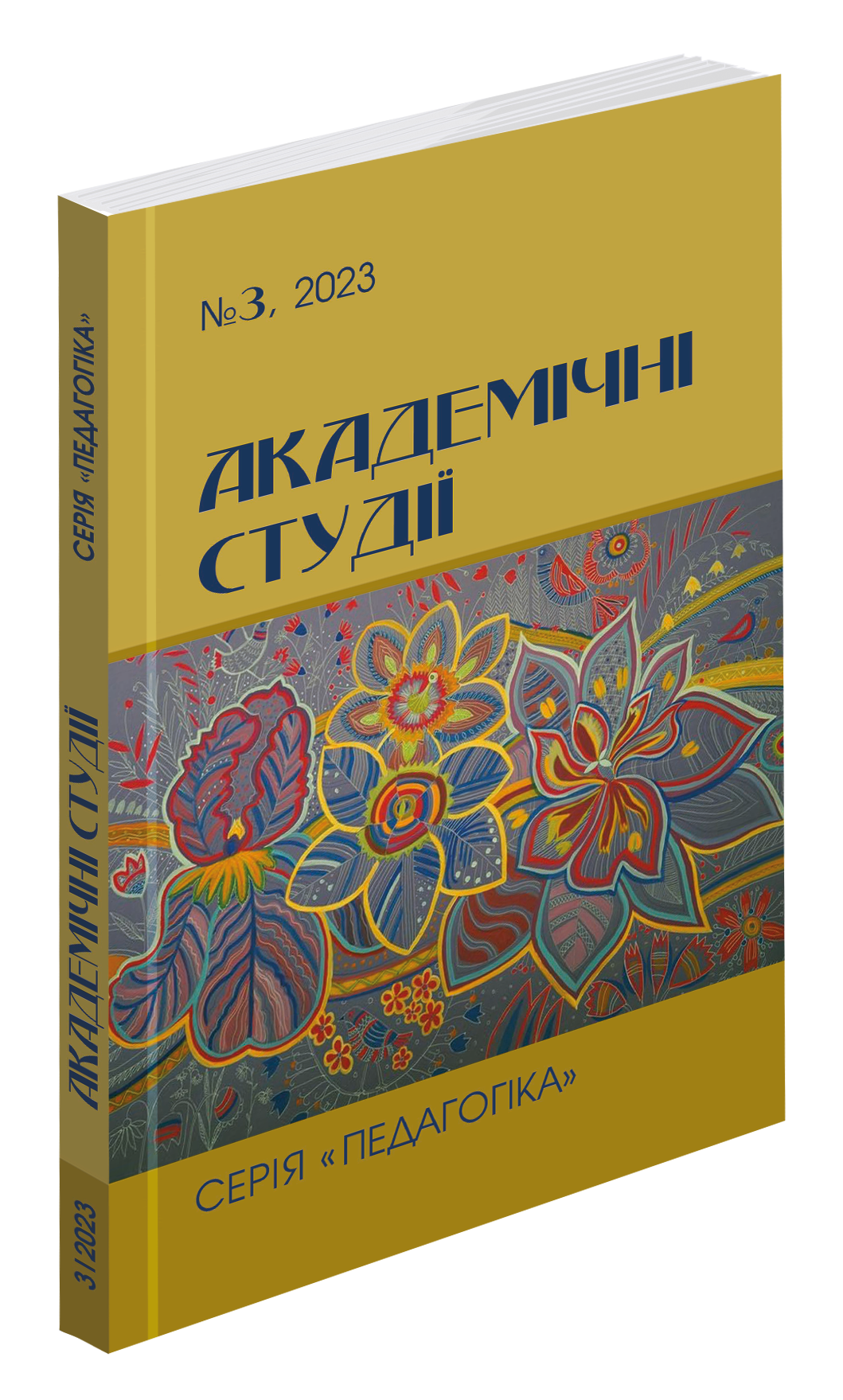Abstract
The article is devoted to proving the need to develop junior schoolchildren’s emotional intelligence; in particular, taking into account the fact that modern surrounding world is full of unpredictable changes and general instability. The relevance of forming emotional intelligence is justified taking into consideration today’s dangerous situation in Ukraine, when children live in long-term stressful conditions. The article substantiates the importance and urgency of the formation and development of emotional intelligence in junior schoolchildren in order to preserve and improve the child’s harmonious personality. It is stated that a low level of emotional intelligence hinders the comprehensive development of the individual and their successful interaction with the environment. The article examines the development and formation of the concept of emotional intelligence from ancient times to the present. It traces how Ukrainian and foreign scientists have studied this issue, which helps to consider the investigated phenomenon multifacetedly. After studying the views of various scientists on the object of research, a working definition is derived: emotional intelligence is the ability to realize and understand one’s own emotions as well as the emotions of others, the ability to manage and express one’s emotional state, to interact harmoniously with the people around. The article argues that early school age is the most sensitive period for the formation of emotional intelligence, therefore a comprehensive approach is used, various directions of the educational process are taken into account, not limited to only one academic discipline. Modern research confirms the possibility and necessity of increasing the level of emotional development with the help of various techniques and methods. These include reading books, analyzing one’s own actions as well as the characters’ experiences, moods and feelings, participation in role-playing games or discussions, demonstrations of photos and videos depicting certain emotional states, involvement of artistic means, etc. A created by the teacher correct strategy for improving schoolchildren’s emotional intelligence is the basis for their success in adult life.
References
Буркова Л. В. Соціономічні професії: інноваційна підготовка спеціалістів у вищих навчальних закладах : монографія. К. : Інформаційні системи, 2010. 278 с.
Гоулман Д. Емоційний інтелект / пер. з англ. С. Гумецької. Київ, 2018. 512 с.
Дерев’янко С. Феноменологія емоційного інтелекту : навч. посіб. Чернігів : «Десна Поліграф», 2016. URL: http://erpub.chnpu.edu.ua:8080/jspui/handle/123456789/640
Котик Т. Нова українська школа: теорія і практика формування емоційного інтелекту в учнів початкової школи : навч. посіб. Тернопіль : Астон, 2020. URL: https://lib.imzo.gov.ua/wa-data/public/site/books2/navchalnometodychny-
posibnyky/dlya-pedpraytsivnykiv/NUS-teoriya-i-praktyka-form-emots-intelekt-Kotyk.pdf
Носенко Е. Л. Курс лекцій з дисципліни «Теорія емоційного інтелекту» із завданнями для самоконтролю: курс лекцій. 2016. 113 с. URL: https://www.dkpp.com.ua/wp-content/uploads/2020/03/nosenko_chetveryk_burchak-.pdf
Носенко Е., Четверик-Бурчак А. Емоційний інтелект як чинник досягнення життєвого успіху : монографія. Київ : Освіта України, 2016. URL: http://repository.dnu.dp.ua:1100/upload/cf4f1242399585b7fb5656da6272651eEIC.pdf
Сухомлинський В. Духовний світ школяра. Вибрані твори : в п’яти томах. Т. 1. 1977. 402 с.
Шпак М. Вікові особливості розвитку емоційного інтелекту молодших школярів. Science and Education a New Dimension.
Pedagogy an Psychology. 2018. Т. VI(8), № 64. С. 72–77.
Izard C. E. The Psychology of emotions. New York : Plenum, 1991. 452 p.

